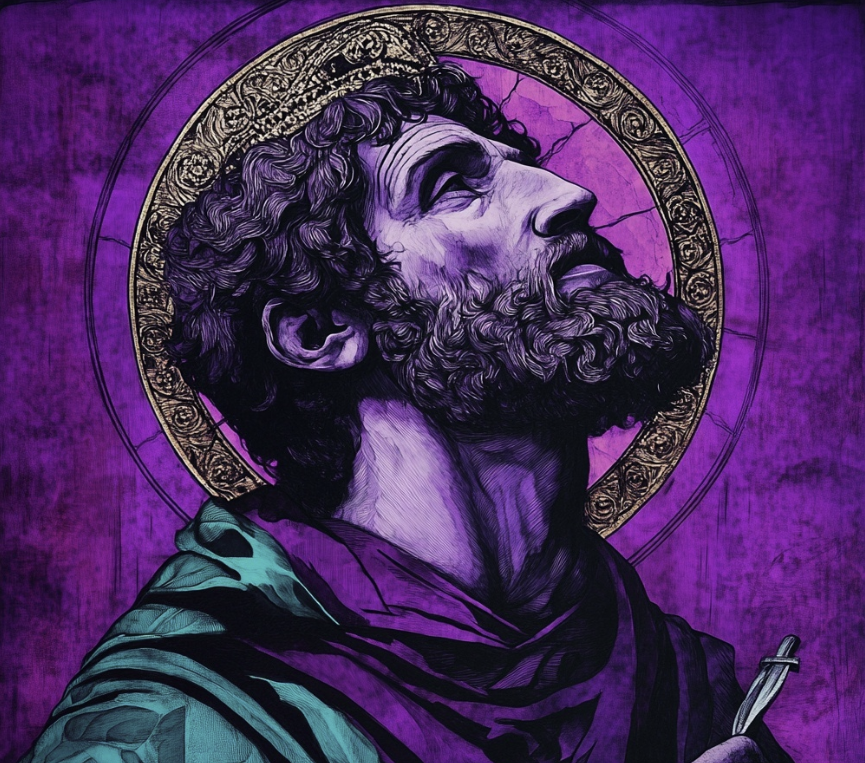
Augustine of Hippo — Seeker of Truth and Founder of Western Christian Thought (354–430)
A restless soul who journeyed through desire, doubt, philosophy, and revelation to become one of the most influential thinkers in Christian history.
From North Africa to the Heart of an Empire
Augustine was born in Thagaste, in Roman North Africa, to a devout Christian mother and a pagan father. Brilliant, ambitious, and hungry for recognition, he pursued studies in rhetoric — the art of persuasive speech — which carried him to Carthage, Rome, and finally Milan. Along the way he embraced various philosophies, looking for a framework that made sense of his desires and his deep inner conflict.
His early life was marked by moral struggle. He later described himself as being “in love with love,” pulled by pleasures he knew were unstable. His search for meaning led him through Manichaeism, skepticism, and Neoplatonism before he found his way back to Christianity.
“You have made us for Yourself, and our heart is restless until it rests in You.”
A Conversion of Mind and Heart
Augustine’s transformation came in Milan under the influence of Bishop Ambrose and his own inner turmoil. In the famous garden scene of the Confessions, he heard a child’s voice say “take and read,” opened Scripture, and felt his will finally aligned with the good he had long resisted.
He returned to North Africa, became a priest, and eventually Bishop of Hippo. For the rest of his life, he wrote, preached, argued, and built up the intellectual and spiritual life of the Christian community.
“I was not yet in love, yet I loved to love.”
The Confessions — A New Kind of Book
Augustine’s Confessions is one of the most unusual and compelling works of antiquity. It is part autobiography, part prayer, part philosophical exploration. He examined memory, desire, sin, and the search for God with an honesty rarely seen in ancient literature.
The book pioneered introspective writing and shaped the Western understanding of the self. It set the pattern for spiritual autobiography for centuries to come.
“Late have I loved You, Beauty ever ancient, ever new.”
Grace, Freedom, and the Human Condition
Much of Augustine’s philosophy centers on the tangled condition of the human will. He argued that human beings long for the good but are wounded by disordered desire — a condition healed only by divine grace. His reflections on will, sin, freedom, and grace shaped Christian theology for a thousand years.
His debates with Pelagius set the terms for future discussions about human nature: can we perfect ourselves, or must transformation come from beyond us? Augustine insisted that grace is not an accessory but the very engine of spiritual renewal.
“Give what You command, and command what You will.”
The City of God — A Vision of History
In response to the sack of Rome in 410, Augustine wrote The City of God, a sweeping work that contrasts the earthly city — driven by self-love and power — with the heavenly city, shaped by love of God. History, he argued, is not a cycle of rise and fall but a story guided by divine providence.
His vision redefined how Christians understood politics, culture, and destiny. It helped form medieval political thought and continues to influence philosophy of history today.
“Two loves have made two cities.”
Legacy
Few thinkers have left a mark as deep as Augustine. His blend of classical philosophy, biblical faith, and introspective depth shaped medieval theology, Reformation debates, and modern understandings of the self. His works remain central to discussions of desire, virtue, will, freedom, grace, and the restless human quest for meaning.
Across centuries, Augustine continues to speak to anyone wrestling with the complexity of the heart and the search for truth.
“Truth is neither mine nor yours, but belongs to all who can grasp it.”
CivilSimian.com created by AxiomaticPanic, CivilSimian, Kalokagathia
